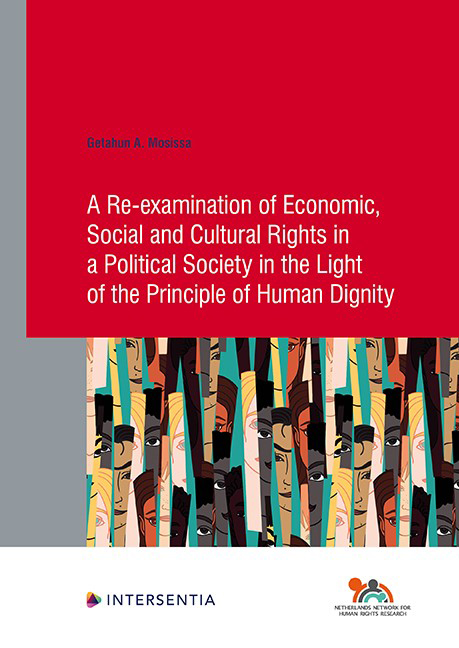Book contents
- Frontmatter
- Acknowledgments
- Dedication
- Contents
- Acronyms
- Chapter 1 General Introduction
- PART ONE THE CONCEPTIONS AND THEORIES OF HUMAN RIGHTS
- PART TWO THE LEGAL OBLIGATIONS OF THE STATE UNDER ESC RIGHTS IN THE LIGHT OF INTERNATIONAL ESC RIGHTS JURISPRUDENCE
- Bibliography
- Samenvatting
- Curriculum Vitae
- Human Rights Research Series
Chapter 3 - Theories of Human Rights in Brief
Published online by Cambridge University Press: 25 May 2021
- Frontmatter
- Acknowledgments
- Dedication
- Contents
- Acronyms
- Chapter 1 General Introduction
- PART ONE THE CONCEPTIONS AND THEORIES OF HUMAN RIGHTS
- PART TWO THE LEGAL OBLIGATIONS OF THE STATE UNDER ESC RIGHTS IN THE LIGHT OF INTERNATIONAL ESC RIGHTS JURISPRUDENCE
- Bibliography
- Samenvatting
- Curriculum Vitae
- Human Rights Research Series
Summary
INTRODUCTION
Although there are several theories of human rights, it has so far not been possible to come up with a universally valid human rights theory through which we can comprehend the holistic nature and implications of human rights in the contemporary world. In particular, the controversy surrounding the normative foundation of human rights is longstanding and yet to be settled; and, admittedly, this is not an easy matter to be considered in detail in this study.
The idea of human rights touches almost every aspect of the life of human beings and their environment. As such, an attempt to theoretically ground this idea of human rights inevitably faces very complex questions ranging from private relations to those highly sophisticated socioeconomic and political relations of the society. This obviously shows the difficulty to fully capture the whole aspect of the idea and significance of human rights through a narrow theoretical prism that concentrates on one or certain of the issues involved. In fact, it is not surprising to see the disagreements or controversies surrounding the theoretical justifications of human rights not just between scholars of different disciplines but even between scholars of a given discipline.
For instance, it is possible that one may approach the justification of human rights from an ethical-moral point of view while another may address the same through procedural-democratic theory and so on. In legal theory, which in itself consists of very divergent strands concerning the law and legal institutions, one may employ various viewpoints such as natural law, legal positivism, legal pragmatism, sociological, anthropological and historical theory of law or discourse theory of law. Surely each viewpoint has provided a valuable perspective in the modern understanding of human rights but none of them has so far been able to provide us with an adequate and comprehensive justification of (the nature and implications) of the idea of human rights.
So, I believe, it is important to state the following three points regarding how we should approach the theoretical justification of human rights. First and foremost, we should always bear in mind that human rights issues permeate through the whole spectrum of individual and collective interests.
- Type
- Chapter
- Information
- A Re-examination of Economic, Social and Cultural Rights in a Political Society in the Light of the Principle of Human Dignity , pp. 49 - 86Publisher: IntersentiaPrint publication year: 2020

